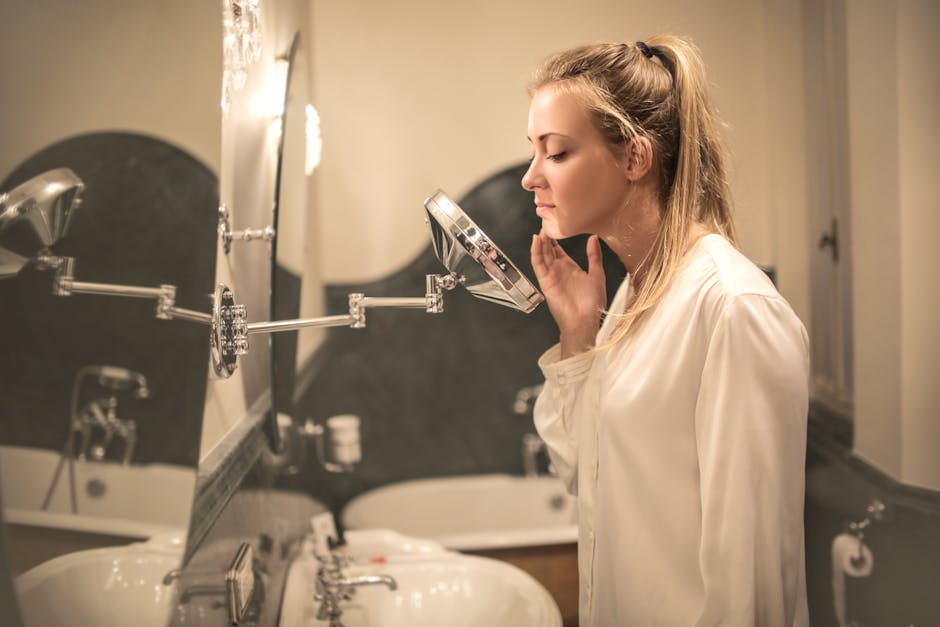Discover How to Cure Acne: The Benefits of a Nighttime Skincare Routine
Discover How to Cure Acne: The Benefits of a Nighttime Skincare Routine
Acne is a common skin condition that affects millions of people worldwide, regardless of age or gender. While it can be a distressing issue, a consistent nighttime skincare routine can significantly improve the condition of your skin. In this blog post, we will explore the benefits of a dedicated nighttime routine and how it can help cure acne, leaving your skin clearer and healthier.
Understanding Acne: Causes and Statistics
According to the American Academy of Dermatology, acne affects approximately 50 million Americans annually, making it the most common skin condition in the United States. Acne occurs when hair follicles become clogged with oil and dead skin cells, resulting in whiteheads, blackheads, or pimples.
The primary causes of acne include:
- Excess Oil Production: Overactive sebaceous glands produce too much oil, leading to clogged pores.
- Bacteria: Propionibacterium acnes bacteria can thrive in blocked pores, causing inflammation.
- Hormonal Changes: Fluctuations in hormones, especially during puberty, pregnancy, or menstruation, can exacerbate acne.
- Diet: Some studies suggest that diets high in refined sugars and dairy can contribute to acne.
- Stress: Stress can trigger or worsen acne flare-ups.
The Importance of a Nighttime Skincare Routine
Establishing a dedicated nighttime skincare routine is crucial for acne management. While daytime routines often focus on protection (like sunscreen and makeup), nighttime routines emphasize repair and rejuvenation. Here’s why a nighttime routine is essential:
1. Allows for Skin Repair and Renewal
During sleep, your skin undergoes a natural repair process where cells regenerate faster than during the day. Applying skincare products at night can enhance this process, helping to clear acne and prevent new breakouts.
2. Maximizes Product Effectiveness
Many acne-fighting ingredients, such as retinoids and salicylic acid, are best used at night as they increase skin sensitivity to the sun. Nighttime application ensures maximum efficacy without the risk of sun damage.
3. Reduces Skin Stress
A nighttime routine helps remove dirt, oil, and pollutants accumulated during the day, reducing the stress these elements put on your skin and minimizing the risk of clogged pores.
Creating an Effective Nighttime Skincare Routine for Acne
Crafting a personalized nighttime skincare routine tailored to your skin type can significantly improve acne. Here are the crucial steps to include:
Step 1: Gentle Cleansing
Start with a gentle cleanser to remove makeup, dirt, and oil. Opt for a cleanser with acne-fighting ingredients like salicylic acid or benzoyl peroxide. Avoid harsh scrubs that can irritate your skin more.
Step 2: Targeted Treatments
Apply targeted treatments such as serums or spot treatments that contain ingredients like:
- Retinoids: Help unclog pores and reduce inflammation.
- Salicylic Acid: Exfoliates the skin and unclogs pores.
- Benzoyl Peroxide: Reduces bacteria and dries out excess oil.
Step 3: Hydration and Moisturizing
Even if you have oily skin, moisturizing is essential. Choose a non-comedogenic moisturizer that won’t clog pores. Ingredients like hyaluronic acid can hydrate without adding excess oil.
Step 4: Eye Cream
Apply a gentle eye cream to tackle issues like puffiness and dark circles, ensuring a refreshed appearance in the morning.
Step 5: Weekly Exfoliation
Incorporate exfoliation into your routine 1-2 times a week to remove dead skin cells. Choose a chemical exfoliant over physical scrubs to avoid irritation.
Step 6: Night Masks
Consider using a night mask once a week for an intensive treatment. Masks with ingredients like tea tree oil or sulfur can target acne while you sleep.
Additional Tips for Managing Acne
Beyond a dedicated skincare routine, there are additional strategies to help manage and prevent acne:
Maintain a Balanced Diet
Avoid high glycemic foods and dairy as they can exacerbate acne. Focus on a diet rich in fruits, vegetables, and lean proteins.
Stay Hydrated
Drinking plenty of water helps flush out toxins and maintain skin health.
Manage Stress
Incorporate stress-reducing activities like yoga, meditation, or regular exercise to help control acne flare-ups.
Avoid Touching Your Face
Touching your face can transfer bacteria and oils, potentially worsening acne.
Conclusion
Acne can be a challenging condition, but a consistent and well-planned nighttime skincare routine can make a significant difference. By understanding the causes of acne and implementing strategic steps into your nightly regimen, you can work towards clearer, healthier skin. Remember, patience and consistency are key, and it’s always a good idea to consult with a dermatologist for personalized advice.
Start your journey to acne-free skin today by revamping your nighttime skincare routine!


